
Category: Events
CITI Seminar of Julie Dumas (Université Grenoble Alpes) on May 21 at 11am
Title: Cohérence de caches dans les architectures manycores et simulation
Date and Place: 21 / 05 / 2019 11:00 in TD-C
Host: Guillaume Salagnac
Abstract:
Biography:
Julie Dumas a obtenu sa thèse de doctorat en informatique à l’Université Grenoble Alpes en 2017. Ses travaux de recherche s’articulent autour de l’architecture des ordinateurs et plus particulièrement à la gestion de la mémoire dans les architectures de type manycores ainsi qu’aux techniques de simulation de ces dernières.
CITI Seminar of Thomas Begin (LIP, UCBL Lyon 1) on April 2 at 11am
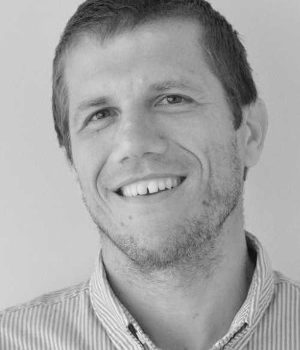
Title: Contributions to the Performance Modeling of Computer Networks
Date and Place: 02 / 04 / 2019 11:00 in TD-C
Host: Jean-Marie Gorce and Florent de Dinechin
Abstract:
Biography:
CITI Seminar of Eddy Caron (LIP, École Normale Supérieure de Lyon) on March 19 at 11am
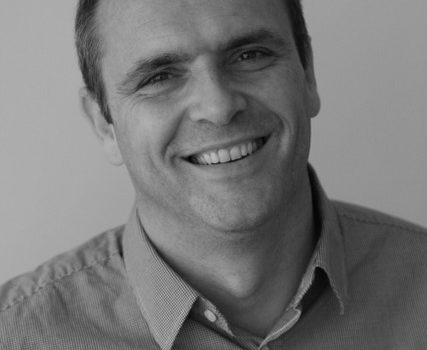
Title: Once upon a time … the deployment
Date and Place: 19/03/ 2019 11:00 in TD-C
Host: Jean-Marie Gorce and Florent de Dinechin
Abstract:
Biography:
CITI Seminar of Alain Tchana (I3S, Université de Nice Sophia-Antipolis) on February 22 at 11AM
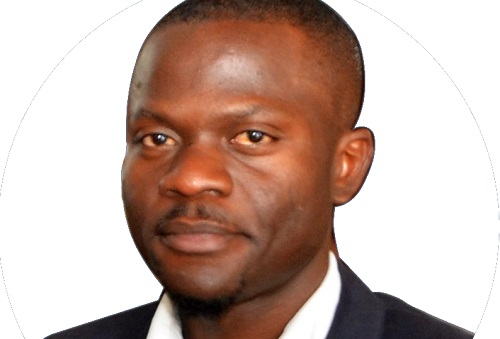
Title: Blablabla Virtualisation
Date and Place: 22/02/2019 at 11:00 in TD-C
Host: Jean-Marie Gorce and Florent de Dinechin
Abstract:
Biography:
CITI Talk: “Wired team presentation and discussions about blockchain”, Stéphane Frenot (INSA-Lyon, CITI) on February 15th at 11am
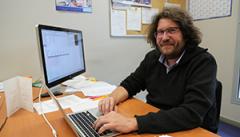
Title
Wired team presentation and discussions about blockchain
Summary
La blockchaines sont des technologies de stockage et de transmission d’informations, permettant la constitution de registres répliqués et distribués, sans organe central de contrôle, sécurisées grâce à la cryptographie, et structurées par des blocs liés les uns aux autres, à intervalles de temps réguliers. Elles sont utilisées par un certain nombre d’acteurs et suscitent de très nombreux débats aussi bien au coin café qu’à l’organisation mondiale du commerce.
En tant que membre du laboratoire de recherche CITI, je me sens concerné par ces technologies, et me demande de ce que nous devons en faire.
Je propose dans ce séminaire de vous présenter ma compréhension des systèmes blockchaines et de vous partager mon point de vue de concepteur d’applications distribuées et pair-à-pair sur le Web.
Bio
Stéphane Frénot a participé à la création du CITI en 2001. Il est spécialisé dans le génie logiciel et les application distribuées. Il a été responsable du thème middleware et de l’équipe INRIA Amazones au laboratoire. Puis il a participé au projet exploratoire INRIA Dice sur les plateformes d’intermédiations. Depuis 1an il est directeur du département Télécommunications Service et Usages de l’INSA où il enseigne le génie logiciel, les systèmes distribués et l’innovation.
Il a travaillé sur les architectures à composants logiciels, les systèmes pairs-à-pairs pour le déploiement de composants et sur un modèle de programmation orienté flux pour Javascript. Il a participé au dépôt de trois brevets : dans l’iot domestique, dans les flux javascript et dans un protocole de vote. Enfin il est responsable du développement de la plateforme Jumplyn de gestion de projets étudiants actuellement en test sur l’INSA pour la gestion des stages.
CITI Talk: “Wireless Networks Design in the Era of Deep Learning: Model-Based, AI-Based, or Both?”, Marco Di RENZO (CR CNRS, L2S) on February 13th at 11am
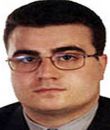
Title
Wireless Networks Design in the Era of Deep Learning: Model-Based, AI-Based, or Both?
Summary
This work addresses the use of emerging data-driven techniques based on deep learning and artificial neural networks in future wireless communication networks. In particular, a key point that will be made and supported throughout the work is that data-driven approaches should not replace traditional design techniques based on mathematical models. On the contrary, despite being seemingly mutually exclusive, there is much to be gained by merging data-driven and model-based approaches. To begin with, a detailed presentation is given for the reasons why deep learning based on artificial neural networks will be an indispensable tool for the design and operation of future wireless communications networks, as well as a description of the recent technological advances that make deep learning practically viable for wireless applications. Our vision of how artificial neural networks should be integrated into the architecture of future wireless communication networks is presented, explaining the main areas where deep learning provides a decisive advantage over traditional approaches. Afterwards, a thorough description of deep learning methodologies is provided, starting with presenting the general machine learning paradigm, followed by a more in-depth discussion about deep learning. Artificial neural networks are introduced as the peculiar feature that makes deep learning different and more performing than other machine learning techniques. The most widely-used artificial neural network architectures and their training methods will be analyzed in detail. Moreover, bridges will be drawn between deep learning and other major learning frameworks such as reinforcement learning and transfer learning. After introducing the deep learning framework, its application
to wireless communication is addressed. This part of the work first provides the state-of-the-art of deep learning for wireless communication networks, and then moves on to address several novel case-studies wherein the use of deep learning proves extremely useful for network design. In particular, the connection between deep learning and model-based approaches is emphasized, proposing several novel techniques for cross-fertilization between these two paradigms. For each case-study, it will be shown how the use of (even approximate) mathematical models can significantly reduce the amount of live data that needs to be acquired/measured to implement data-driven approaches. For each application, the merits of the proposed approaches will be demonstrated by a numerical analysis in which the implementation and training of the artificial neural network used to solve the problem is discussed. Finally, concluding remarks describe those that in our opinion are the major directions for future research in this field.
Seminar of Josep Paradells Aspas (Polytechnic University of Catalonia) on October 10th at 11am

The next CITI seminar will take place on October 10th, at 11am in the margin of Alexis PhD defense. This seminar entitled “Radio wake-up solutions: applications, standards and developments” will be presented by Josep Paradells Aspas from Polytechnic University of Catalonia.
Seminar of Carles Antón-Haro (Telecommunications Technological Center of Catalonia) on September 27th at 9.30am

The next CITI seminar will take place on September 27th, at 9.30am in the margin of Yuqi PhD defense. This seminar entitled “Machine- and Deep-Learning for Beam Selection in Hybrid Analog Beamforming Architectures” will be presented by Carles Antón-Haro from Telecommunications Technological Center of Catalonia.
Titre : Machine- and Deep-Learning for Beam Selection in Hybrid Analog Beamforming Architectures
Abstract : This talk deals with the application of deep learning (DL) and machine learning (ML) techniques to beam selection problems in the uplink of a mmWave communication system. Specifically, we consider a hybrid beamforming architecture comprising an analog beamforming (ABF) network followed by a zero-forcing baseband processing block. The goal is to select the optimal configuration for the ABF network based on the estimated AoAs of the various user equipments. To that aim, we consider (i) two supervised machine-learning approaches: k-nearest neighbors (kNN) and support vector classifiers (SVC); and (ii) a feed-forward deep neural network: the multilayer perceptron (MLP). Computer simulations reveal that, for a well-designed codebook of analog beamformers, this task can be effectively accomplished by such data-driven schemes. Performance, in terms of sum-rate, is very close to that achievable via exhaustive search, in particular for the MLP.
Bio : Carles Antón-Haro received his PhD degree in Telecommunications Engineering from the Technical University of Catalonia in 1998 (cum-laude). He also holds a Master in Business Administration (MBA) from EADA Business School (2014, Best Final Degree Project Award). In the pursuit of his PhD degree, he was a recipient of scholarship granted by the Dept. of Universities and Research of the Generalitat de Catalunya (1995-1998). As a Research Assistant (1994-1998, UPC) and Research Associate (1998-1999, UPC), he participated in several EC Projects (Tsunami, Tsunami II, Sunbeam), as well as in other projects funded by the Spanish government. He was Teaching Assistant in the field of Computer Architecture (UPC 1994, UOC 1998-2012). In 1999, he joined Ericsson Spain, where he participated in two rollout projects of 2G and 3G mobile networks (2000, Regional Coordinator).
Currently, he is with the CTTC, where he works as a Director of R&D Programs and Senior Research Associate. Main duties, in addition to his daily research activity, include the overall coordination of CTTC’s participation in publicly-funded R&D projects and technology transfer projects, networking activities towards the establishment of strategic alliances with the industry and academia, monitoring of R&D funding programs and identification of new opportunities, and interaction with CTTC’s Scientific Committee in what concerns R&D programs. In the past, he was also in charge of the recruitment of human resources at the CTTC, and he defined the internal processes in relation with CTTC’s project portfolio. Since 2001, he has promoted or coordinated over 60 R&D projects or proposals and has been directly involved in some of them (P2P SmartTest, NEWCOM#, EXALTED, eCROPS, ADVANTAGE, WINNER, to name a few). He is an elected member of the Steering Board of the Networld2020 European Technology Platform since 2009 (formerly known as Net!works).
His research interests are in the field of signal processing for communications, this including radio interface design, multi-user MIMO, wireless sensor networks, opportunistic communications, link layer protocols (MAC, H-ARQ); and estimation theory with emphasis in state estimation for Smart Electricity Grids. He has published +20 technical papers in IEEE journals, books and book chapter; as well as +80 papers in international and national conferences. He is a recipient of the 2015 Best Paper Award of the Transmission, Access, and Optical Systems (TAOS) Technical Committee’s (Green Communications Track, ICC). He has supervised four Master Theses and five PhD Theses (two in progress). He has also acted as a reviewer of project proposals for various (inter)national funding agencies (e.g., ANEP, AGAUR, MIUR, ANR, ANVUR) and takes part in PhD Evaluation Committees on a regular basis.
Seminar of Lionel MOREL (CEA Grenoble) on October 18th at 2pm

The next CITI seminar will take place on October 18 th, at 2pm. This seminar entitled “Polen: une approche SW/HW pour la confidentialité des programmes et des données” will be presented by our former colleague Lionel MOREL from CEA Grenoble.
Titre : Polen: une approche SW/HW pour la confidentialité des programmes et des données.
Résumé : D’aucuns voudraient connecter un nombre grandissant d’objets, entre eux, mais aussi au réseau internet, pour permettre la collecte d’un nombre toujours plus grand d’informations et réaliser ainsi l’augmentation de nos vies jusque-là visiblement sous-dimensionnées. Mais connecter des objets, y stocker des informations personnelles, tout en les rendant accessibles facilement au reste du monde ouvre la voie à toute une série d’usages dangereux pour nos données et nous-mêmes.
Les approches de protection matérielles traditionnellement utilisées (eg pour la carte à puce) sont certes très efficaces, mais elles sont également très coûteuses en développement, en certification, et en déploiement. Au CEA, nous étudions comment des approches logicielles peuvent venir en complément de ces approches matérielles pour augmenter le niveau de confiance placé dans l’objet tout en limitant les coûts et en flexibilisant l’application des protections.
Dans cet exposé, je présenterai un cas particulier d’approche mêlant contre-mesures matérielles et logicielles, que nous développons actuellement. Il sera question d’attaques par canaux cachés, de reverse-engineering (un peu) de compilation dynamique, de chiffrement de code (plus), de pompe à insuline et de lampes connectées aussi, et de fin du monde peut-être.
Bio : Après une thèse sur les langages de programmation dédiés aux systèmes critiques, soutenue à Verimag en 2005 et quelques voyages scientifico-culturels en Bretagne et Finlande, Lionel Morel a intégré l’INSA Lyon en 2007 et le CITI en 2009. Il y a mené des travaux de recherche entre autres sur la programmation et l’évaluation de performances de machines parallèles, tout en enseignant les systèmes d’exploitations, l’architecture des ordinateurs et la compilation. Depuis 2017, il est détaché auprès du CEA, à Grenoble, où il travaille sur l’usage de la compilation pour la sécurité.
